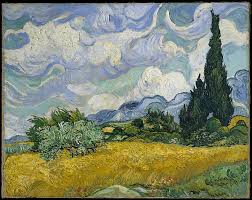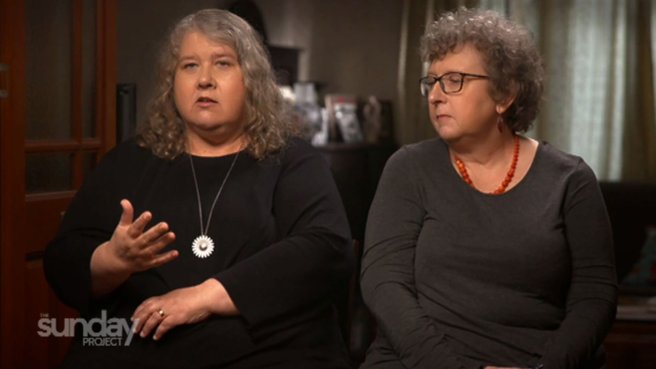Friday 4th October @ the FAC is Prose with Helen Hagemann : 10am-noon
This class will
look at Anton Chekhov and read two of his short stories, Ninochka: a love story & Heartache.
Writing exercises and discussion on Chekhov’s profound observations of
quotidian things.
Venue: Room 2, Upstairs, Fremantle Arts Centre
$20 OOTA : $25 NON-OOTA
No Booking needed. All welcome!
Chekhov’s
Heartache is a sad little
tale about one moment in life. No one has any time or wants to listen to Iona’s sad news that
his son has just died. He tries to talk to people about it, but somehow he is
resigned to them not listening. He appears as a miserable person and yet, he is
not. There is something sweet, delicate and profound about the soul of the man
who is resigned to his station in life.
Anton Pavlovich Chekhov was born in
the small seaport of Taganrog, Ukraine on 29th January 1860. Today he is
remembered as a playwright and one of the masters of the modern short story. He
was the son of a grocer and the grandson of a serf who had bought his freedom,
that and that his sons, 19 years earlier. Chekhov spent his early years under the
shadow of his father's religious fanaticism while working long hours in his
store. Chekhov attended a school for Greek boys in his hometown from 1867-1868
and later he attended the local grammar school from 1868-1876 when his father
went bankrupt and moved the family to Moscow. Chekhov, only 16 at the time,
decided to remain in his hometown and supported himself by tutoring as he
continued his schooling for 3 more years.
After he finished grammar school Chekhov
enrolled in the Moscow University Medical School, where he would eventually
become a doctor. Chekhov's medical and science experience is evident in much of
his work as evidenced by the apathy many of his characters show towards tragic
events. While attending medical school Chekhov began to publish comic short
stories and used the money to support himself and his family and by 1886 he had
gained wide fame as a writer.
Chekhov's works were published in various St. Petersburg papers, including Peterburskaia gazeta from 1885, and Novoe vremia from 1886. Chekhov also published 2 full-length novels during this time, one of which, "The Shooting Party," was translated into English in 1926. The lack of critical social commentary in Chekhov's works netted him some detractors, but it gained him the praise of such authors as Leo Tolstoy and Nikolai Leskov. Chekhov was awarded the Pushkin Prize in 1888. The next year he was elected a member of the Society of Lovers of Russian Literature. However after the failure of his play The Wood Demon (1889) he withdrew from literature for a while. Instead he turned back to medicine and science in his trip to the penal colony of Sakhalin, north of Siberia. While there he surveyed 10,000 convicts sentenced to life on the island as part of his doctoral research. He traveled extensively, including places like East Asia, the Indian Subcontinent, and the Middle East. In 1892 Chekhov bought an estate in the country village of Melikhove and became a full time writer.
It was during this time that he published some of his most memorable stories including 'Neighbors' (1892), 'Ward Number Six' (1892), 'The Black Monk' (1894), 'The Murder' (1895), and 'Ariadne' (1895). In 1897 he fell ill with tuberculosis, moved to Yalta, and while there he wrote his famous stories 'The Man in a Shell,' 'Gooseberries,' 'About Love,' 'Lady with the Dog,' and 'In the Ravine.' In 1901 Chekhov finally married to an actress, Olga Knipper, who had performed in his plays. But their bliss would be short lived, Chekhov died on July 15, 1904, in Badenweiler, Germany. He is buried in the cemetery of the Novodeviche Monastery in Moscow. (source: Wikipedia)
Chekhov's works were published in various St. Petersburg papers, including Peterburskaia gazeta from 1885, and Novoe vremia from 1886. Chekhov also published 2 full-length novels during this time, one of which, "The Shooting Party," was translated into English in 1926. The lack of critical social commentary in Chekhov's works netted him some detractors, but it gained him the praise of such authors as Leo Tolstoy and Nikolai Leskov. Chekhov was awarded the Pushkin Prize in 1888. The next year he was elected a member of the Society of Lovers of Russian Literature. However after the failure of his play The Wood Demon (1889) he withdrew from literature for a while. Instead he turned back to medicine and science in his trip to the penal colony of Sakhalin, north of Siberia. While there he surveyed 10,000 convicts sentenced to life on the island as part of his doctoral research. He traveled extensively, including places like East Asia, the Indian Subcontinent, and the Middle East. In 1892 Chekhov bought an estate in the country village of Melikhove and became a full time writer.
It was during this time that he published some of his most memorable stories including 'Neighbors' (1892), 'Ward Number Six' (1892), 'The Black Monk' (1894), 'The Murder' (1895), and 'Ariadne' (1895). In 1897 he fell ill with tuberculosis, moved to Yalta, and while there he wrote his famous stories 'The Man in a Shell,' 'Gooseberries,' 'About Love,' 'Lady with the Dog,' and 'In the Ravine.' In 1901 Chekhov finally married to an actress, Olga Knipper, who had performed in his plays. But their bliss would be short lived, Chekhov died on July 15, 1904, in Badenweiler, Germany. He is buried in the cemetery of the Novodeviche Monastery in Moscow. (source: Wikipedia)



















